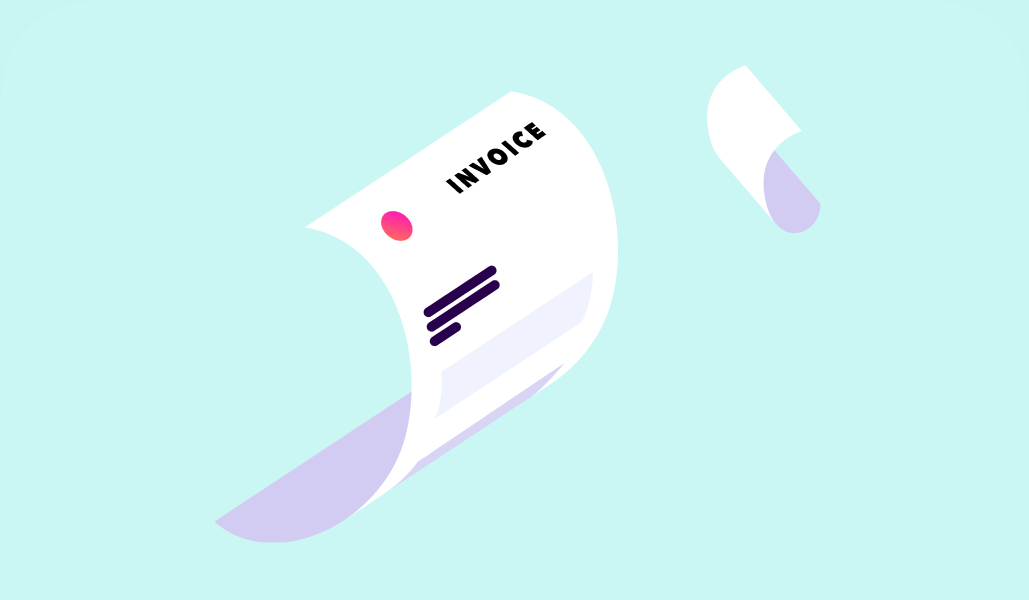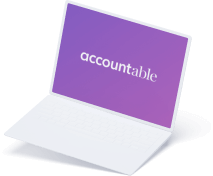
Copyrights revenue for Belgian freelancers
Read in 6 minutes
You are software developer, marketeer, creative, writer, translator, or you simply produce original artistic or literary material. You heard about copyrights and how those might help you lower your taxes?
This article is made for you: in the next 1000 words, we will cover what copyrights are, how they are taxed and how concretely you can invoice with copyright. A concrete simple guide that might call for in-depth discussions, naturally. In which case, we’d be happy to help through the in-app support.
Do you want to optimise your taxes?
Here is a short piece to help you do so. Let’s go ⤵️
Tax gains for copyrights: from 50% to 15%…or even lower 💪
It’s simple: copyright income is taxed at a flat rate of 15%. This tax rate is further reduced by the application of flat-rate charges (charges forfaitaires): 50% on income up to €18.720 per year (1st bracket) and 25% for the revenue from this number up to €37.450 (2nd bracket).
Concretely, the first €18.720 received by a copyright author during a year is therefore taxed at a rate of 7.5% and the following €18.720 is taxed at 11.25%. This is a far cry from the marginal rate applied to professional income, which can rise above 50% (when social security contributions are taken into account).
Attention, this regime is applicable up to €70.220 of copyright income received per year (2023 figures). For the surplus, you can safely consider it will be taxed as professional income.
Am I eligible for copyrights in Belgium?
It’s both simple and…complex: there are eligibility criteria relative to you, as a person, and to your work, the type of good or services you provide. Let’s look at those quickly.
💁♂️ Conditions linked to You
Special taxation for copyrights is only applicable as such to natural persons (personnes physiques or eenmanszaken). When harvested by limited companies, revenue from creative work are not accounted for separately.
✏️ Conditions linked to your Work
In order to benefit from reduced taxation, two elements are required: a work protected by copyright (yes…) and an income that is derived from the transfer or license of copyright. This seems obvious, but be careful you understand those concepts properly, risks are real.
The income must be related to a work protected by copyright (droit d’auteur / auteursrecht) as set out in Book 11, title 5 of the Belgian Code of Economic Law. The law refers to “literary and artistic works” but these concepts must be understood broadly. Thus, software, certain databases, 3D designs or technical and scientific literature can be protected.
To be protected by copyright, a work must exist in a concrete form (read: it cannot be just a concept or an idea) and must be original, i.e. “bear the imprint of the author’s personality”. Originality is a complex and widely discussed notion in copyright law… a topic to be left to lawyers, probably.
No other conditions apply. In particular, a work does not need to be deposited or registered, or be accompanied by certain mentions, to be protected.
Then, copyright (the right to reproduce, modify and communicate the work) must be transferred or licensed to a person, and only the price paid for such transfer or license may be qualified as “copyright income”.
Risks involved (must read)
Copyright revenue are a favorite for tax auditors.
Expect a strong welcome at your next tax audit.
Part of the game, some will say.
The following criteria have been mentioned as important when tax authorities are assessing the validity of copyright revenue:
- the author’s field(s) of activity and specialty(ies);
- the organisation of his work, his relations with the possible copyright payer;
- the method of remuneration applied and the criteria used to determine it;
- the possible reimbursement of expenses incurred by the author.
In practice, tax authorities tend to always require that transfers or licenses of copyright are established in written contracts respecting certain forms, in particular with regard to the remuneration of authors.
Failure to comply with these formalities may lead to the rejection of the application of this favorable tax regime, be warned.
How to determine the part of the revenue that can be considered as copyright revenue?
Probably the trickiest part in your copyright revenue setup when you are hired to create works and to transfer the resulting copyright: estimating how much should be invoiced as copyright on your bill? 100%? Less?
Actually, looking at it as percentage of a total amount is a general misconception. There is no part of the revenue considered as copyright revenue as such : the copyright amount on your invoice is the amount that represents the transfer of copyrights to your client. It is NOT the time spent on creative work.
However, your copyright income may not exceed:
- 50% for income year 2023
- 40% for income year 2024
- 30% from income year 2025
That said, we naturally advise you to discuss the matter with a certified tax advisor, or even better, a specialised lawyer. To get the situation under complete control, we also definitely recommend looking at solutions such as Creative Shelter, a Belgian company we admire.
Which VAT rates apply for copyright revenue?
The VAT rate for operations for transfer of copyrights is determined according to the rules set in art. 18, § 1st, 7° of the Belgian VAT code. In most cases, it will be 6% or 21%, depending on the type of work rendered.
For software, for instance, it’s most often 21%.
For illustrations & drawings, generally 6%.
For edition work, often 0%.
Don’t hesitate to contact us if you’re unsure about the VAT rate to apply.
I heard my client needs to pay withholding taxes immediately on copyright revenue. Is it true? How important is it for me?
True. Your client needs to pre-pay your taxes on this copyright revenue. That’s the purpose of the withholding tax. Yes, your client pre-pays your tax, you heard properly.
From your client perspective, it means that the cost of the invoice will consist of
- Your fee (paid to you)
- The copyright assignment (paid to you)
- The withholding tax (paid to the Administration)
That is why some will say the withholding tax is deducted from the total amount to pay. A question of point of view.
How much should the withholding tax be?
Simple: it’s the amount of taxes you should pay on the copyright revenue: thus 7.5% or 11.25% of the copyright revenue amount set on the invoice, depending on how much copyright you invoiced this year so far (see above).
Are there other obligations for my client?
Yes: they also need to register this withholding tax on a specific platform. The platform provides them with wiring instruction as well. Failure in doing will put them at risk in case of an audit.
What happens if my client does not pay this withholding tax?
You will need to pay the tax at the end of the year. When your client pays your withholding tax, they also register the tax (see above), which means that those withholding taxes will automatically appear on your income tax statement on TaxOnWeb. If they don’t appear there, it means they probably did not pay them, which means you will need to pay.
Bear in mind that withholdings paid by your clients are advance payments in any case; your final taxes will be calculated based on the full amount received during the year and you will have to pay the difference at that point. Fair game.
Check-list to start invoicing with copyrights ✅
Ready? Let’s summarise what you need to start invoicing with copyrights in Belgium:
- A clear understanding of what are copyrights and whether or not your work is eligible
- A good idea of the % of your work that qualifies as copyright
- A written contract with your client(s), specifying a transfer or license of copyright and a related price
On the invoice, you will absolutely need to include:
- A clear indication of the articles that are copyrights (e.g. “Assignment of copyright”, “Toekenning auteursrecht”, “Attribution des droits d’auteur”)
- Their relative VAT rate (0%, 6% or 21%)
Additionally, you can (but are not obliged to) mention the amount of the withholding tax that your client will need to pay. Your client needs to pay this withholding tax, so it’s better (for good business relationships) if you mention it clearly on the invoice.
How it works in Accountable
It works seamlessly in Accountable 💛:
- Your create your invoice with the right items corresponding to your (creative and non-creative) work
- You add an item for copyrights at the correct VAT rate and name it Assignment of copyright, Toekenning auteursrecht or Attribution des droits d’auteur
- In the comments, you add the amount of withholding tax your client needs to pay. See above to learn more about how to compute this amount.
Doing so, your VAT returns will be 100% correct.
Over the course of 2021, we will enable you to categorise the revenue under “copyrights” to make sure your income tax computations are also correct.
Off you go, dear.
If you have any question, don’t hesitate to reach out in the app, in the Support tab
Did you find what you were looking for?
Happy to hear!
Stay in the know! Leave your email to get notified about updates and our latest tips for freelancers like you.
We’re sorry to hear that.
Can you specify why this article wasn’t helpful for you?
Thank you for your response. 💜
We value your feedback and will use it to optimise our content.










